Fritextsökning
Artiklar per år
Innehållstyper
-

Why the world renown researcher Marc Tessier-Lavigne resigns as Stanford´s president
In mid-summer, neuroscientist Marc Tessier-Lavigne announced his resignation as President of Stanford following allegations of manipulated study data. According to the reporter Theo Baker, who first reported the story, Tessier-Lavigne “rewarded the winners and punished the losers”. Here is the background of the story which has shaken the American scientific community over the summer.
-
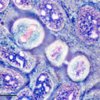
Uppgörelse klar om Henrietta Lacks odödliga celler
Sedan över 70 år lever Henrietta Lacks celler vidare i laboratorier världen över, och har bidragit till medicinsk forskning som räddat otaliga liv. Själv visste hon inte ens om att cellproverna togs och ingen kompensation har getts – förrän nu.
-
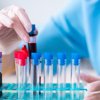
Nytt Alzheimerstest säljs direkt till konsument
Amerikanska Quest Diagnostics har lanserat ett blodtest för diagnos av Alzheimers som marknadsförs direkt mot konsument. Testet mäter nivån av beta-amyloid, och ska bidra till tidig upptäckt av sjukdomen.
-
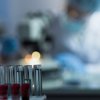
Astra Zeneca köper genterapier av Pfizer
Astra Zeneca tar via dotterbolaget Alexion över en portfölj av genterapier i tidigt skede från Pfizer.
-
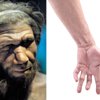
Neanderthal gene variants may cause Viking disease
A new study suggests that the so-called Viking disease, which affects the hand function in many older people, may be linked to gene variants inherited from Neanderthals.
-

Study: Chat GPT is more empathetic than doctors
The AI tool Chat GPT is not only more accurate when it comes to answering patient questions – the chatbot is also perceived as almost 10 times more empathetic than real doctors, a new study reveals.
-

He got inside the head of Sweden’s vaccine hunter
The hunt for the COVID-19 vaccine is the theme of the new book Vaccinjägaren (The Vaccine Hunter). It tells the story of Richard Bergström’s mission as Sweden’s national vaccine coordinator and the scheming that went on behind the scenes in Europe
-
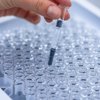
Novo Nordisk i samarbete om nya terapier mot diabetes och fetma
Danska läkemedelsjätten Novo Nordisk har ingått ett partnerskap med det kanadensiska biotech-bolaget Aspect Biosystems om utveckling av bioprintade vävnadsterapier inom diabetes och fetma.
-

The impact of the recession on the Swedish medtech sector
We need health care regardless of whether the economy is good or bad, but the current recession also affects the Medtech sector.
-

Fem saker du måste veta om AI 2023
Är ditt jobb hotat av maskininlärning? Varför är det viktigt att hänga med i utvecklingen inom artificiell intelligens? Här får du svar på vad du behöver veta om AI just nu.
-

Meeting with focus on South Korea and Japan’s life sciences
Large, complex and exciting – this is how Britta Stenson, Business Sweden, describes the life science markets of Japan and South Korea, which took centre stage during a webcast seminar.
-

The Swedish National Board of Health and Welfare rejects prioritising andrology as a speciality
Male infertility can be linked to a shorter lifespan and several severe diseases, but when couples who want children are examined, the focus is on the woman. Experts in the field claim that andrology needs to become a speciality in Sweden to increase awareness and knowledge. But the Swedish National Board of Health and Welfare says that it is not a priority.
-

“An entire industry is about to be wiped out”
According to Jennie Ekbeck, CEO of Umeå Biotech Incubators, Sweden risks not having any small diagnostic companies left in five years.
-

Column: ”Life as a F1 race”
"The F1 car makes several pit stops during a race and during a lifetime the human being may also have to come in several times for maintenance", Björn Ursing writes in a column.
-

Editorial: ”AI that both impresses and frightens”
”In the past, I've rarely been particularly impressed by something that was produced by AI. But this is something completely different”, Samuel Lagercrantz writes in an editorial.
-

A surprising discovery about the immune system in cases of cancer
Professor Göran Jönsson is trying to understand why some patients benefit from immunotherapies while others don’t. A couple of years ago, he made a surprising discovery about the function of the immune system.
-

Claims of life science companies fleeing abroad is a myth according to survey
The claim that life science companies are moving abroad is exaggerated. In fact, only a tiny percentage is leaving the country, according to a survey.
-

"Unclear proposal from the EU Commission on how to solve the MDR challenges"
Even before the EU regulation on medical devices (MDR) came into force, medical technology companies and doctors were concerned that it would endanger the availability of medical devices in the EU. Unfortunately, the fears have come true.
-
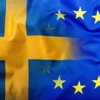
Sweden is organising a large life science conference as part of the EU presidency
On 26-27 June, Sweden will host a European meeting on life science.
-
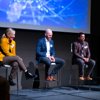
“Everyone is screaming for talent”
Attracting talent is one of the life science industry’s major future challenges, which was one of the conclusions of the panel discussion that ended the New Horizons in Biologics & Bioprocessing conference on 15 December.
-

Läkemedelsjätten får bakläxa - IGN fäller läkares uttalande om "prisvärdhet"
Sakligt korrekt eller ej — en läkare får inte på uppdrag av ett läkemedelsföretag förorda en viss behandling framför andra. Det slår Informationsgranskningsnämnden (IGN) vid Lif fast och fäller Pfizer för att ha brutit mot det etiska regelverket i sin marknadsföring.
-

ALS – When the body has given up, but the brain persists
The nerve disease ALS gradually deprives the patient of control over the muscles and, eventually, also of speech. The eyes continue to function, though, and with the help of, among other things, a Swedish-developed invention, communication with the outside world can continue. “It’s their window to the world,” says ALS researcher Caroline Ingre.
-

She creates pharmaceuticals on a 3D printer
The correct dosage for each individual, regardless of whether the pharmaceutical is for a seriously ill child or a frail elderly person, is the mission of a well-advanced project with 3D-printed drugs at Uppsala University. “It will soon be available in clinics”, says Christel Bergström, who is heading the project.
-

Neanderthal genes and Nobel Prize in a popular lecture at Bioscience
An inherited gene variant from our ”evolutionary cousins” – the extinct Neanderthals – may affect how our bodies break down certain drugs. “It’s only a matter of time before we actively start screening for it,” said KI researcher Hugo Zeberg when describing the study at Bioscience 2022.